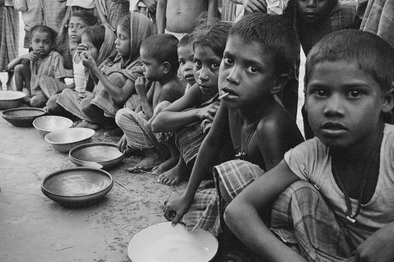
Mind the gap
by Geraint Jones
Inequality is a complex concept and many don’t understand the depth that it goes into. Most associate it with wealth and income, but it has deeper roots in society, affecting, and in many cases increasing, numerous ‘social ills’. Economic inequality in the world is what I feel most of the focus rests on, and it is at the forefront for campaigning for change in the developing world. An Oxfam report recently released data that told a shocking truth of the world’s wealth, ‘the richest 1% now have more wealth than the rest of the world combined’ (Oxfam, 2016) as well as ‘8 people own as much wealth as 50% of the global population of 7.4 billion’ (Oxfam International, 2017)
The study of sociology has helped me to understand the frightful truth of inequality and the massive scale of it that occurs in the world. Inequality was always a rather foreign topic to me. I just assumed it was the difference of living standards in the first world to the third, but my studies have helped broaden my horizons to the real danger of it. The fact that eight people own that much wealth in the world is truly horrifying and unimaginable in my mind and looking deeper into the Oxfam report linked above revealed more scary truths. ‘Over the next 20 years, 500 people will hand over $2.1 trillion to their heirs – a sum as big as the GDP of India, a country of 1.3 billion people’, and this statement is particularly interesting as sociology can help look deeper into it. In political debate, the equality of opportunity is widely debated and this links directly into this due to inheritance. Should inheritance be banned to stop inequality? Of course this is a sensitive topic to touch on, however, it does raise issues like whether it is fair that two babies just born into this world will have a vastly different quality of life just because they are born into different families? The Oxfam report talked more in depth about inheritance stating that ‘one-third of the world’s billionaire wealth is derived from inherited wealth’. Facts like these demonstrate the issue with equality of opportunity and illustrate that there is a large problem with inheritance when discussing this topic.
The issue with the rich getting richer and children inheriting massive fortunes can be tied into Pikkety’s idea that the rate of return of money invested is larger than actual growth in the markets. He says that ‘People with inherited wealth need save only a portion of their income from capital to see that capital grow more quickly than the economy as a whole’ (Piketty and Goldhammer, 2014, p. 27). This can explain the idea that capitalism is directly responsible for inequality, as the ownership of capital allows for a further accumulation of capital through investment, and how capitalism is inherently unequal.
Even in countries that are seen in a powerful position in the world demographic i.e. America, social ills are still seen there and inequality has more of an impact than many would think. In their work ‘The spirit level: why equality is better for everyone’ Wilkinson and Pickett (2010) provide strong evidence that supports the claim that it is the inequality in a society that has a bigger impact on some social ills rather than more economic issues. The graphs produced show that health and social issues have a positive correlation with income inequality in all the US states, and when compared with the national income per person, the relationship is much less clear and inconclusive. They also talk of ‘social gradients’ in their text. This is to say that poorer members of each society are more likely to be affected by social ills, due to their inequality in relation to their society. They say the problems are not caused by the society ‘not being rich enough’ but ‘what matters is where we stand in relation to others in our own society.’
Are there any real solutions to solving inequality? Picketty suggests that a global wealth tax should be introduced, but dealing with inequality within countries will need to be handled differently than dealing with global inequality. The issue of inequality is seen in many different ways, as it affects people in different ways depending on their position in society, but we cannot stand by and let it continue as it’s clear it will not sort itself out on its own.
References:
Hardoon, D., 2017. An Economy for the 99%: It’s time to build a human economy that benefits everyone, not just the privileged few. Oxfam.
Piketty, T., Goldhammer, A., 2014. Capital in the twenty-first century.
Wilkinson, R.G., Pickett, K., 2010. The spirit level: why equality is better for everyone?; [with a new chapter responding to their critics], Publ. with revisions, with a new postscript. ed, Pinguin sociology. Penguin Books, London.

0 Comments